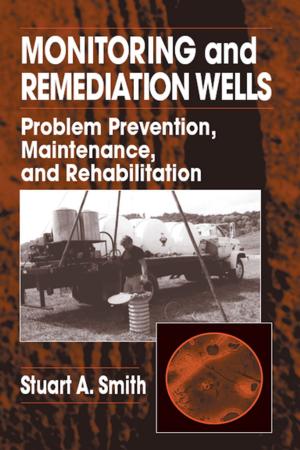Handbook of Mixture Analysis
Nonfiction, Computers, Advanced Computing, Theory, Science & Nature, Mathematics, Statistics| Author: | ISBN: | 9780429508868 | |
| Publisher: | CRC Press | Publication: | January 4, 2019 |
| Imprint: | Chapman and Hall/CRC | Language: | English |
| Author: | |
| ISBN: | 9780429508868 |
| Publisher: | CRC Press |
| Publication: | January 4, 2019 |
| Imprint: | Chapman and Hall/CRC |
| Language: | English |
Mixture models have been around for over 150 years, and they are found in many branches of statistical modelling, as a versatile and multifaceted tool. They can be applied to a wide range of data: univariate or multivariate, continuous or categorical, cross-sectional, time series, networks, and much more. Mixture analysis is a very active research topic in statistics and machine learning, with new developments in methodology and applications taking place all the time.
The Handbook of Mixture Analysis is a very timely publication, presenting a broad overview of the methods and applications of this important field of research. It covers a wide array of topics, including the EM algorithm, Bayesian mixture models, model-based clustering, high-dimensional data, hidden Markov models, and applications in finance, genomics, and astronomy.
Features:
- Provides a comprehensive overview of the methods and applications of mixture modelling and analysis
- Divided into three parts: Foundations and Methods; Mixture Modelling and Extensions; and Selected Applications
- Contains many worked examples using real data, together with computational implementation, to illustrate the methods described
- Includes contributions from the leading researchers in the field
The Handbook of Mixture Analysis is targeted at graduate students and young researchers new to the field. It will also be an important reference for anyone working in this field, whether they are developing new methodology, or applying the models to real scientific problems.
Mixture models have been around for over 150 years, and they are found in many branches of statistical modelling, as a versatile and multifaceted tool. They can be applied to a wide range of data: univariate or multivariate, continuous or categorical, cross-sectional, time series, networks, and much more. Mixture analysis is a very active research topic in statistics and machine learning, with new developments in methodology and applications taking place all the time.
The Handbook of Mixture Analysis is a very timely publication, presenting a broad overview of the methods and applications of this important field of research. It covers a wide array of topics, including the EM algorithm, Bayesian mixture models, model-based clustering, high-dimensional data, hidden Markov models, and applications in finance, genomics, and astronomy.
Features:
- Provides a comprehensive overview of the methods and applications of mixture modelling and analysis
- Divided into three parts: Foundations and Methods; Mixture Modelling and Extensions; and Selected Applications
- Contains many worked examples using real data, together with computational implementation, to illustrate the methods described
- Includes contributions from the leading researchers in the field
The Handbook of Mixture Analysis is targeted at graduate students and young researchers new to the field. It will also be an important reference for anyone working in this field, whether they are developing new methodology, or applying the models to real scientific problems.















